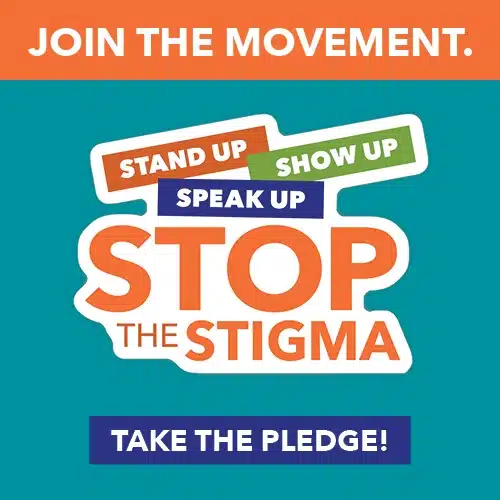When living with a mental health condition or facing a mental health concern, it’s common to feel like no one understands what you’re going through. But many people overcome the mental health challenges they face. You aren’t alone – help is out there and recovery is possible.
As outlined by Mental Health America below, mental health conditions can be hard and confusing. It’s becoming more and more common to talk about mental health in the open, but there’s still a lot of stigma or judgment that people have about mental health conditions. If you’ve seen or heard negativity about the same challenges you deal with, you might internalize those attitudes and feel shame about your experiences. This shame, or self-stigma, can make it difficult to talk about your concerns. Here are some steps to take to begin the process of asking for help.
Admit to yourself that you’re struggling.
Accepting that you might have a mental health condition can be scary – it suddenly feels so real. But it can also put you on a path to getting the help you deserve.
Key terms to know when discussing mental health:
- Recovery: a process of change through which individuals improve their health and wellness, live self-directed lives, and strive to reach their full potential
- Stigma: negative, judgmental, and/or discriminatory attitudes toward mental health challenges and those who live with them
- Self-Stigma: negative attitudes and shame regarding an individual’s own mental health, resulting from internalizing public stigma
- Peer: someone who shares the experience of living with a mental health condition and/or substance use disorder
- Mental Health Professional: a licensed or certified mental health treatment provider
- Therapist: a mental health professional trained to help individuals understand and cope with their thoughts, feelings and behaviors; may assess and/or diagnose mental health conditions
- Psychiatrist: a licensed medical doctor who has completed additional psychiatric training; can diagnose mental health conditions, prescribe and manage medication, and provide therapy
- Health Insurance: a signed contract with a health insurance company that requires the company to pay for some of the health care costs
- Outpatient: treatment that takes place in an office, hospital, or other clinical setting but does not invoice overnight stays
Talk to someone you trust.
It can be hard to know what to say, but just naming what you’re experiencing is a good start. Friends and family can be key supporters as you start your recovery journey – healing is hard to manage alone, and your loved ones can only support you if they know what’s going on. Talking in-person can feel overwhelming – try writing down what you want to say to gather your thoughts or put everything into a letter to give them and talk about it later.
Speak with a professional.
Finding help can be intimidating. For some people, just the thought of talking to a doctor about your mental health is scary. There might be long wait times or words you don’t understand. How do you even know where to begin? No matter what, you are deserving of help.
Professional help is available at Oaks Integrated Care. If you are concerned about your mental health or want to check in with a professional, Oaks is here for you. To learn more or schedule an appointment, call our Access Center at 1-800-963-3377 or fill out our contact form.









